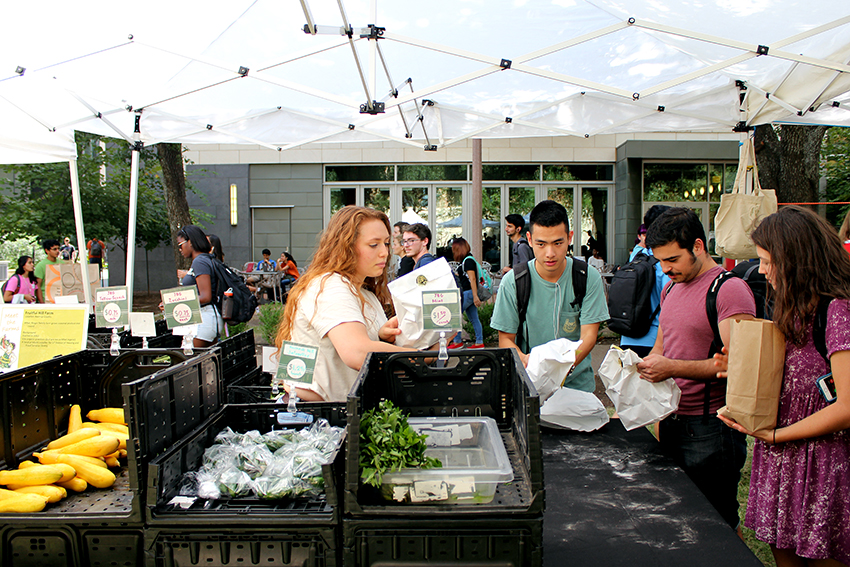Several food options are available for students around campus, but finding organic items such as bok choy, avocados and honey can be difficult.
On Thursday, students had the opportunity to purchase these organic items among others at the UT Farm Stand from noon to 5:30 p.m. while learning more about the importance of sustainability and its impact on the environment.
The Farm Stand is run by student volunteers and the Division of Housing and Food Services. DFHS sustainability coordinator Neil Kaufman said the Farm Stand is funded by Student Government and the Green Fee Committee and will take place five times this semester, with three remaining markets approximately every three weeks.
“Our purpose is to provide local, sustainable, healthy food items and produce to students and faculty on campus so they have that available, but also to demonstrate the value of supporting our local economy and our farmers,” Kaufman said.
Kaufman said not all of the farmers are organic certified because the certifications are expensive to receive, especially for small, local farmers. However, they do follow organic guidelines and practice sustainable agriculture.
Psychology junior Jocelyn Wakham, a UT Farm Stand volunteer, said the farm stand purchases its produce straight from the farmer in order to sell it to the UT community. Wakham said the farm strives to provide access to organic, more sustainable produce, which a lot of people might
not have.
“I think our main thing is just the knowledge of sustainability of produce and how it helps the environment,” Wakham said. “Everything is grown within 150 miles of the Austin area. It’s kind of common knowledge that most produce is grown with pesticides and chemicals, and it’s just terrible for the body.”
Wakham said pesticides have proven harmful effects on immune health, reproductive health, stress and hormone secretion. She said the environment is affected because pesticide-infected water runoff spreads to natural vegetation and areas where produce is not grown.
“I chose to volunteer here because I’ve always been interested in nutrition,” Wakham said. “As a psychology major, I think it’s important to know how mental health is directly related to physical health, which depends a lot on what you eat.”
Health and society freshman Sandra Kumar said it is important to know where the foods we eat are coming from.
“The Farm Stand helped me realize that I don’t pay much attention to where my food is coming from and that there is a much bigger picture when it comes to our food,” Kumar said. “We need to know the effect its production has, not only on our bodies but on our environment as well.”





















